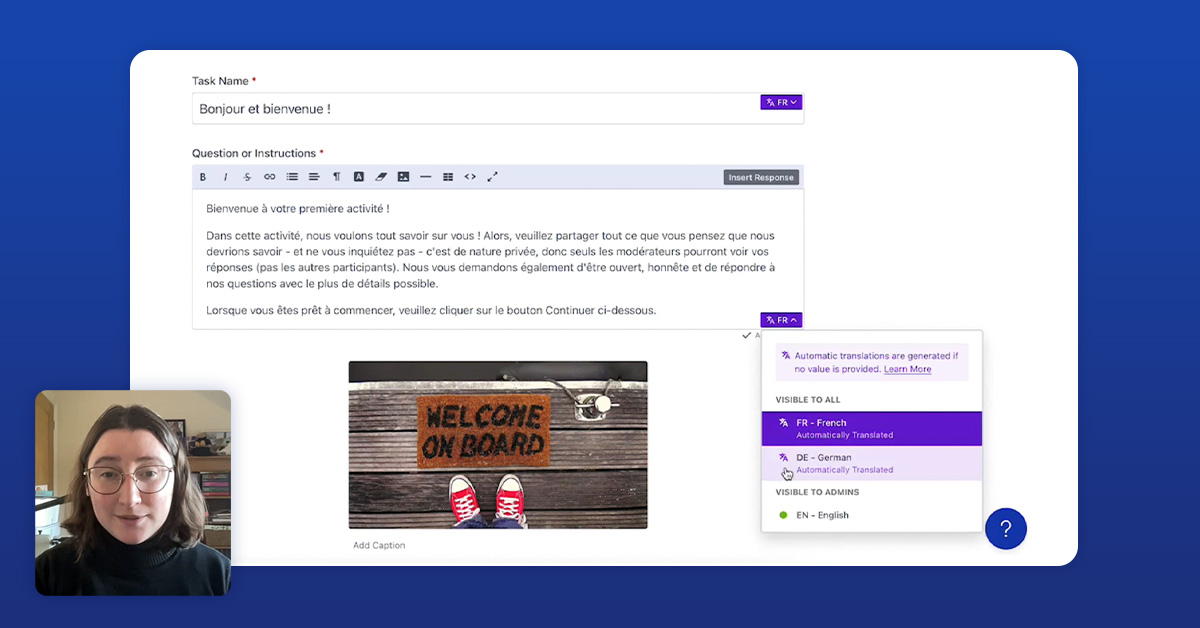Starting with a well-thought-out research plan is key to uncovering meaningful insights in online qualitative research. By planning each step carefully – from defining your goals to shaping your study – you'll set yourself up for success. In this article, we’ll walk you through the essential steps to planning an asynchronous study so you can ensure your project stays on track and you get the most out of your research efforts.
As you begin to scope out and design your project, you might wonder: How many participants should I include? How much time should I ask from them daily? And how long should the study run? Our Research Services team has compiled some best practices to make your planning process smoother, so you can focus on what really matters – gathering valuable qualitative insights!
Step 1: Define Your Objectives
Defining your objectives is where it all begins. It’s essential to make sure the answers you get from your research align with what your stakeholders need to know. To make sure you’re on the right page, start by identifying the research objective and setting goals that directly address that objective.
Create a problem statement.
What's the main issue you want to explore in your study? Your problem statement should clearly define the issue you're tackling.
Set your research goals.
What are you hoping to discover over the course of your project? Your research goals should outline what you want to learn and how you'll approach the problem that you’re looking to solve.
AI can also be a helpful tool to keep your goals on track. In Recollective, you can outline your project goals in the Study Objectives section to ensure the AI's output aligns with your specific research objectives.
Step 2: Determine the Scope
Once your objectives are clear, it's time to narrow down the project plan by defining the scope. This includes deciding on the methodology, number of participants, timeline and budget. Recollective offers various methods for conducting online qualitative research – both asynchronous and live – but this guide focuses on best practices for running an asynchronous study.
Get the numbers right.
In qualitative research, having more participants doesn’t always lead to better insights. When choosing the sample size for your study, it's important to remember that we’re not trying to make generalizations about an entire population. Instead, the goal is to reach saturation – the point where adding more participants to your study doesn’t result in new information.
You’ll also need to consider whether your study includes segments. For example, you’ll likely want to ensure you have demographic representation (e.g., age, gender, region). Starting with a minimum of 5 participants per segment (e.g. for age, 5 participants aged 18-34, 5 aged 35-54 and 5 aged 55+) is a good rule of thumb, and a general ad-hoc study might include 15-30 participants when considering these factors.
We also recommend over-recruiting by at least 20% to account for potential drop-offs. If you have a highly specific target audience, you may want to over-recruit even more just to be safe.
Set clear time expectations.
Online qualitative research projects typically range from 60-90 minutes in total, but this can vary – projects can become longer as they easily grow in size. Because of this, you should make sure participants know what kind of time commitment to expect before they commit.
Recollective's Preview Mode is a great tool to estimate how long your study will take from a participant's perspective. You can use it to test your project and get an accurate idea of the duration that you can then share with your participants.
Include buffer time.
It’s important to make sure that you can answer your objectives in the timeline you have for the study, so adding a few extra days can make all the difference. This gives participants time to get comfortable with you and the technology, enables them to catch up if they fall behind and allows for any follow-up questions or probes you might have at the end of the study.
Show participants they are valued.
Compensation is important, and participants should be paid fairly for their time, just as they would be for an in-person study. Just because the research is being conducted online, it doesn’t mean they should be paid less. Making sure your participants are well paid is a good way to show them that you value their contribution!
In terms of how much you should pay them, it’s difficult to make a general recommendation on the exact amount – this will depend on various factors, including recruitment source, audience specificity and study duration.
Step 3: Write the Questions
Now that your plan is in place, it’s time to write your questions! Here are a few tips to make the most of Recollective’s platform:
Use the funnel approach.
When figuring out how to write your questions, you should start by revisiting your research goals. For each goal, create a list of questions you want to answer. Then, when choosing the question order, you should start with broad questions that allow you to understand your audience and gradually narrow down to more specific questions.
This will make sure you get more genuine responses, and also avoids influencing participants' perceptions – if you introduce questions or give specific tasks too early in the study, you can potentially create bias among your participants.
Group similar topics into Activities.
In Recollective, an Activity is a collection of related questions or exercises called Tasks. When structuring your Activities, it can be tempting to group Tasks based on the number of days in the study by creating an Activity for Day 1, Day 2, Day 3, etc.
While this approach works, we've found that grouping activities by topic rather than day gives participants more flexibility and makes it easier to keep them engaged. When structuring your Activities this way, you can use Recollective's Activity Sequencing to make sure that your first activity is always completed before the second, and so on.
Another tip is to always make sure the number of Activities is equal to or less than the number of days participants have to complete them. If you were running a 5-day project, for example, we would recommend including 3-5 topic-oriented Activities that each take around 10-20 minutes to complete.
Use more Activities and fewer Tasks.
Using shorter Activities with fewer Tasks help prevent participant fatigue. Shorter Activities are more enjoyable to complete, and if your study involves socialization between participants, this gives them more time to review each other's responses more often without feeling overwhelmed. For tasks, aim for no more than 10-15 Tasks per Activity to keep things manageable and enjoyable.
Use a variety of Task Types.
As a participant, going through a study with several long-answer responses in a row or long lists of grid questions to fill out can feel exhausting and repetitive. To keep things fun, be sure to mix up the ways that participants can respond to your questions.
Recollective offers a range of Task Types like Image Review, Poll and Sort & Rank, that you can use to keep your study fresh and interesting. You can also group and randomize Tasks in an Activity, which can be useful for rotating the order of different concepts and removing any bias that could result because of a specific order.
Wrapping Up Your Research Plan
Successful online qualitative research is all about careful planning. By defining your objectives, carefully considering your participant segment and writing thoughtful questions, you’ll set yourself up for a smooth and successful study.
Recollective’s platform and features can help you streamline your research process, so you can focus on gathering the insights that matter. With these best practices in mind, you're well on your way to conducting successful studies on Recollective!
Bonus Tip: We’re Here to Help!
If you need a little extra guidance, Recollective is here to help you through the research process from start to finish! Check out our full list of Services to learn more, and don’t hesitate to reach out to our team if you have any questions or need help setting up your first online qualitative study!







.svg)